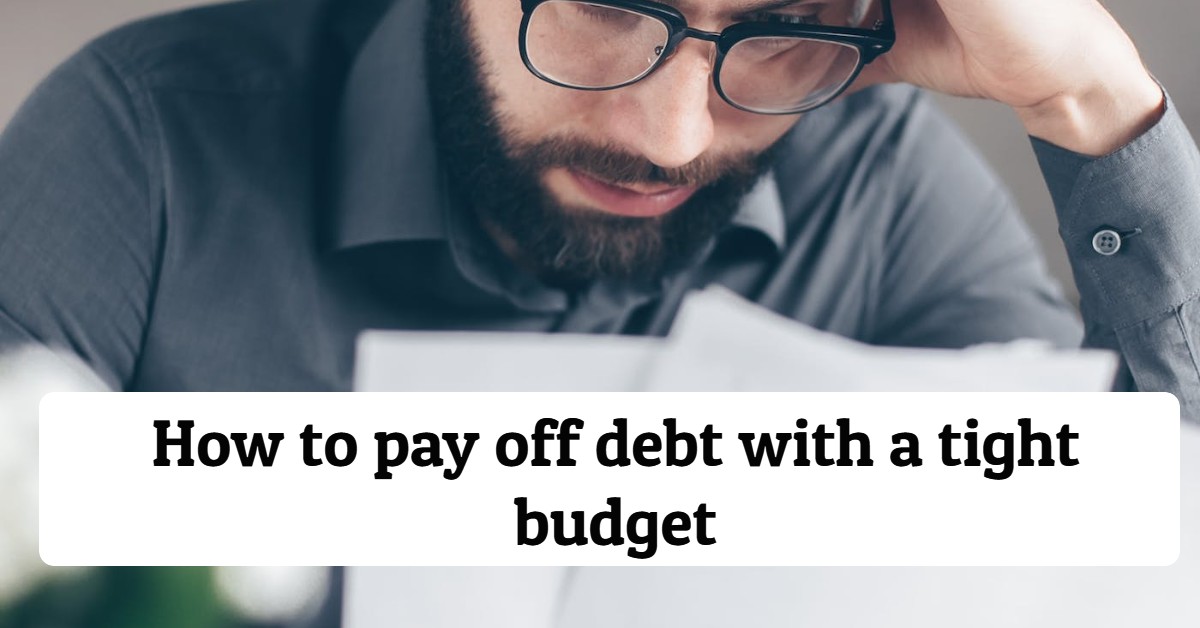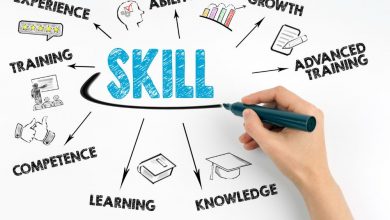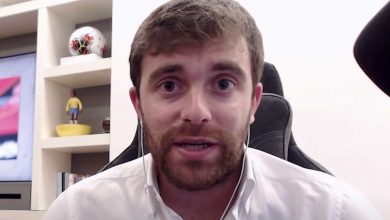How to pay off debt with a tight budget (Strategies 2023)

How to pay off debt with a tight budget: Paying off debt can be a challenging task, especially when you have a tight budget. However, with careful planning and disciplined financial habits, it is possible to make progress toward becoming debt-free even with limited financial resources.

In this article, we will explore some practical tips and strategies for paying off debt with a tight budget. From creating a budget, prioritizing debt payments, cutting expenses, and increasing income, to seeking help and staying motivated, we will cover key steps to help you effectively tackle your debt while managing your limited budget.
By implementing these strategies, you can take control of your finances, reduce your debt burden, and work towards achieving your financial goals.
How to pay off debt with a tight budget: FAQs & Answers
Can I pay off debt with a tight budget?
Yes, it is possible to pay off debt with a tight budget. It requires careful budgeting, prioritizing debt payments, cutting expenses, increasing income, and staying committed to your debt repayment plan.
How do I create a budget to pay off debt with a tight budget?
Start by listing your monthly income and expenses. Identify areas where you can cut back on unnecessary spending and allocate a portion of your income towards debt payments as a priority in your budget. Use budgeting tools or apps to help you track your spending and stick to your budget.
What debts should I prioritize when paying off debt with a tight budget?
Prioritize debts based on interest rates, due dates, and minimum payments. Focus on paying off high-interest debts first to reduce the overall cost of borrowing. Make at least the minimum payments on all debts and allocate any extra funds towards the highest priority debt to accelerate its payoff.
Must Read: Top 10 Best Places to Refinance Student Loans (2023 Review)
How to pay off debt with a tight budget
1. Create a Budget
To get started, create a comprehensive budget that includes a breakdown of your monthly revenue and spending. Examine your costs in great detail and search for places where you may make reductions or perhaps do away with some of the expenditure that isn’t essential. As a top priority in your financial plan, set aside some of your earnings to go toward paying down your debt.
2. Prioritize Debt Payments
Locate your outstanding obligations and arrange them in the order of their interest rates, dates they are due, and minimum payments. Pay off loans with the highest interest rates first in order to bring down the total cost of borrowing money. Pay at least the minimum amounts due on all of your bills, and direct any additional cash towards the debt that has the greatest priority in order to pay it off more quickly.
3. Cut Expenses
Seek other means through which you might reduce your costs. This can entail cutting back on discretionary expenditures, such as going out to eat, spending money on entertainment, or subscribing to magazines that aren’t required. Think about negotiating a cheaper rate with the companies that supply your services, such as your cable or internet provider, or look for other solutions that are more reasonable.
4. Increase Income
You should look for ways to improve your income, such as getting a part-time job, doing freelance work, or selling things that you no longer need or desire. Make use of the increased money to make additional payments towards your obligations, which will assist in speeding up the process of paying off your debts and get you closer to financial freedom.
5. Stay Motivated
It is crucial to stay motivated in order to pay off debt because doing so involves self-control and perseverance. Keep reminding yourself of the benefits of becoming debt-free, such as better financial flexibility and less stress. This will help you stay motivated. To keep oneself motivated along the journey, celebrate the accomplishment of even very little milestones.
6. Avoid New Debt
Avoid taking on any additional debt while you are working to pay off the debt you already have. If at all possible, avoid using credit cards and don’t borrow money unless it’s really essential. Keep in mind that you should try to stay within your means financially and steer clear of taking on any more debt that might slow down your efforts to become debt-free.
7. Consider Debt Consolidation
Consider merging your many loans into a single loan with a reduced interest rate if you have a number of obligations with varying interest rates. It will be much simpler for you to manage your debt payments on a limited budget if you can streamline your payments and maybe minimize the overall interest charges associated with them.
8. Look for Debt Relief Options
Investigate your alternatives for getting out of debt, such as debt settlement or debt negotiation, which might enable you to minimize the total amount of your debt by talking with the companies that are owed the money. Be wary and investigate reliable choices since some debt relief programs could charge you fees or have an effect on your credit score.
9. Stay Committed
When working with a limited budget, paying off debt needs self-control and dedication. Maintain coherence in your adherence to the budget, debt payments, and other financial practices. Keep a record of your advancement and acknowledge each new achievement with a celebration, secure in the knowledge that you are working towards paying off your debts.
10. Seek Help
If you’re struggling to make ends meet, don’t hesitate to seek help. Consider talking to a credit counselor who can provide guidance on budgeting, debt management plans, and negotiating with creditors. You can also explore government or non-profit programs that provide financial assistance or debt relief options.
Conclusion
In conclusion, paying off debt with a tight budget is challenging but achievable with careful budgeting, prioritization, expense cutting, income boosting, and staying committed to a debt repayment plan. It may require sacrifices and discipline, but it is possible to become debt-free even with limited financial resources.
Seeking help from financial professionals or exploring debt relief options can also be beneficial. Stay motivated, track your progress, and celebrate small milestones along the way. With determination and perseverance, you can successfully pay off your debts and improve your financial well-being.
Related:
15 Common Mistakes to Avoid in Personal Finance Management
Budgeting: Key to Personal Finance Management
15 Simple Ways To Build Your Savings (Ultimate Guide 2023)




